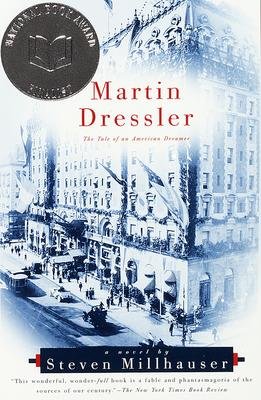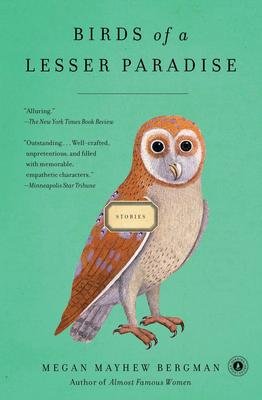Recommended Reading: Emma's Forever Favorites
Backlist books need love too! For this series, each bookseller is shouting out a few backlist titles (as opposed to recent frontlist books) that you should put at the top of your TBR. First up is Emma, store owner and author extraordinaire.
I used to read in an absolutely wild way: if a book looked good to me, I would read it. Nowadays, I have galleys flying at my face six months ahead of publication, blurb requests pouring into my inbox on a daily basis, and interviews with other authors on the calendar, all of which adds up to a total lack of serendipity in my reading time. It's not that I don't want to read those books, because I often do, it's more that want isn't the defining characteristic. Much of my reading is now homework.
For this blog post, I wanted to reach back to the days when my reading life was my own, and, most pleasurable of all, when I loved a book, I could simply move on to the next title in an author's catalogue. After all, the backlist is really what makes an independent bookstore itself--the gems from years past that take up precious real estate. Not the newest hot title, and not Middlemarch, though those are important--I'm talking about the deeper cuts. Here are some of my favorites.
Steven Millhauser, Edwin Mullhouse (1972) and Martin Dressler (1996)
If you were to just read the flap copy, these two books might sound alike--the life stories of two men. Wrong-o! These are both wild, mysterious, brain-exploding explorations of what a novel looks like, what a life looks like, what storytelling is and could be. Edwin Mullhouse is a story within a story, a biography of a child prodigy. I love novels like this, that are experimental in conceit but not in form, a reminder that the container known as 'novel' is as expansive as our imaginations allow. Martin Dressler is more straightforwardly a story of a man's rise, but what a rise! What a tale! The sentences are just so good, and the story is always moving in an unexpected direction. Also, I love that I can never quite remember which name is the real one--is it Edwin, is it Martin, is it Steven? And if the Simpsons' Millhouse isn't based on Edwin Mullhouse at least a little bit, I'll eat my hat.
Megan Mayhew Bergman, Birds of a Lesser Paradise and Almost Famous Women
It is always funny to me to think about how MFA programs are the short story industrial complex, as if the writing of short stories is easier to teach, and easier to do, than the writing of novels. As far as I'm concerned, the hierarchy of difficulty peaks with poetry and then descends one level to the short story. Novels live at the bottom, large and slow enough to accommodate many imperfections, the manatees of the literary world. (Manatees are my favorite animals.) Case in point: the perfection of Megan Mayhew Bergman's ouevre. Her new book of stories, How Strange a Season, will be out in March, but before that, I hereby insist that you read her two earlier collections, Birds of a Lesser Paradise (2012) and Almost Famous Women (2015). Both are crystalline perfection--shimmery stories of womanhood and the outside world, of love and sex and obligation. These are stories that I can still hear in my ear years later, the way you remember something and can't remember if it happened to a friend or you read it in a book. Every time I finish a story, I have to put the book down and think, how does she do that? Which is a very, very nice feeling indeed.











